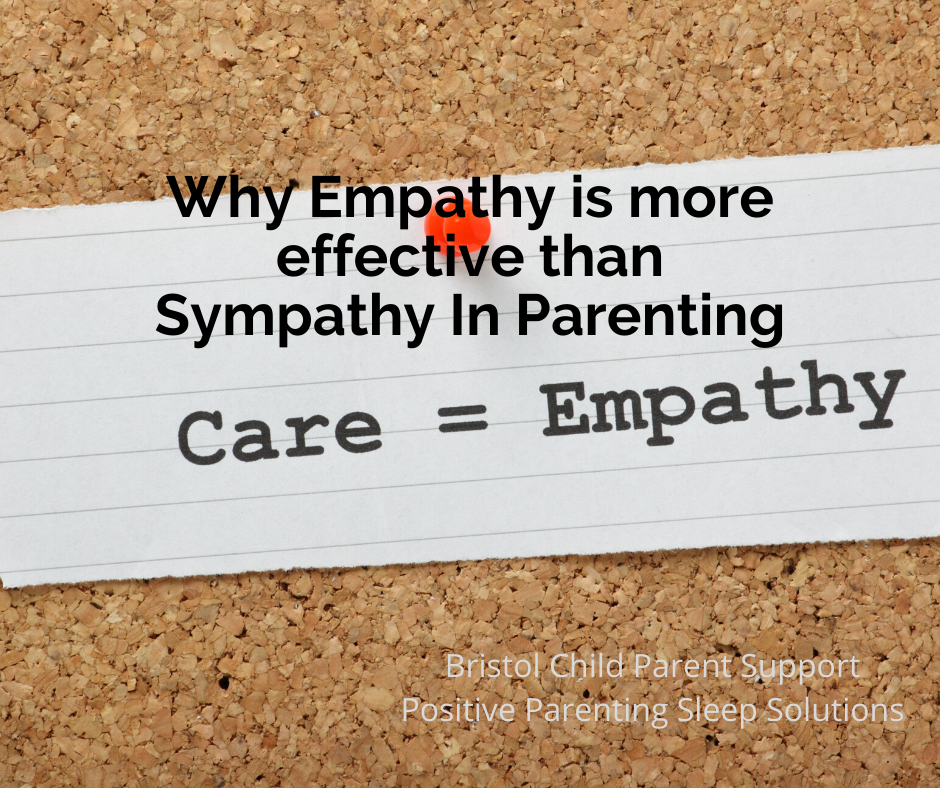There is such a fine line between sympathy and empathy. However, using empathy in your parenting fosters closeness and connection. Isn’t that what we all want, especially in January!
Empathy vs Sympathy
- Sympathy directs attention to how you feel.
- Empathy is about active listening. It tells your child you are paying attention to how she feels.
- Sympathy is about me. Empathy is about you.
- Empathy has nothing to do with how you feel; it’s about understanding how the other feels given their circumstance.
What’s your experience with Sympathy?
My mother loved to sympathise, it came from a place of good intention and love. Her most used expressions were:
Oh dear, poor you and do you really need to do that!
Do any of those words sound familiar to you? Her sympathy was not helpful and I felt invalidated. This was not because she meant too, hence, I stopped sharing my problems with her because then I had to manage her feelings in combination with mine.
How does it impact your Parenting?
When we sympathize with our children, we can cross a boundary and become enmeshed with our child in their problem. We then become overly protective or involved and try hard to fix or take away our child’s problem. This often leads to Helicoptering Parenting
An empathic position is more detached, moreover, it creates more internal space to manage their feelings about the problem. Empathy lets the child know that this important adult understands him and can name his feelings, so he feels normal and accepted.
A common parenting situation
Your child has returned from school to report a child has been calling them names. A sympathetic response to this could be:
I never liked ….. you need to tell him that you don’t like to be talked to like that. Ask him how he would feel if he got called that.
Notice, how the above statement is about you and your feelings. And yes, parenting is the hardest job on the planet, but it’s so much harder when you think it’s your responsibility to fix their problems. I want to help you let go of that responsibility by being empathic.
An empathetic response might sound like this:
That must be so hard when you hear that name. I can imagine that you might feel pretty demoralized during playtime. I am really glad you told me…
Use words such as maybe, you might and sometimes.

Your child can then check whether he feels this way and adjust his response. He knows you are listening and understanding how he feels. Take your time to really pause on offering a solution straight away, then follow this up with further questions and work on how he might be able to find a solution.
I hope this helps, this was inspired by Brene Brown’s video I shared on my Facebook page last week. If you want more Positive Discipline ideas, I hope to connect and share with you at my Parent Workshops in February and March. With Much Love and Gratitude Catherine



